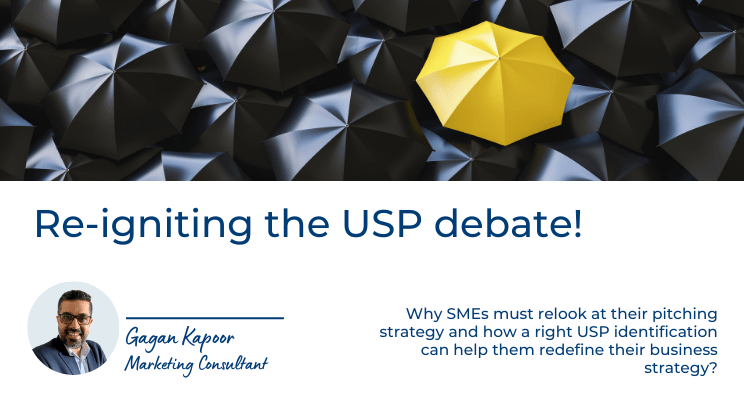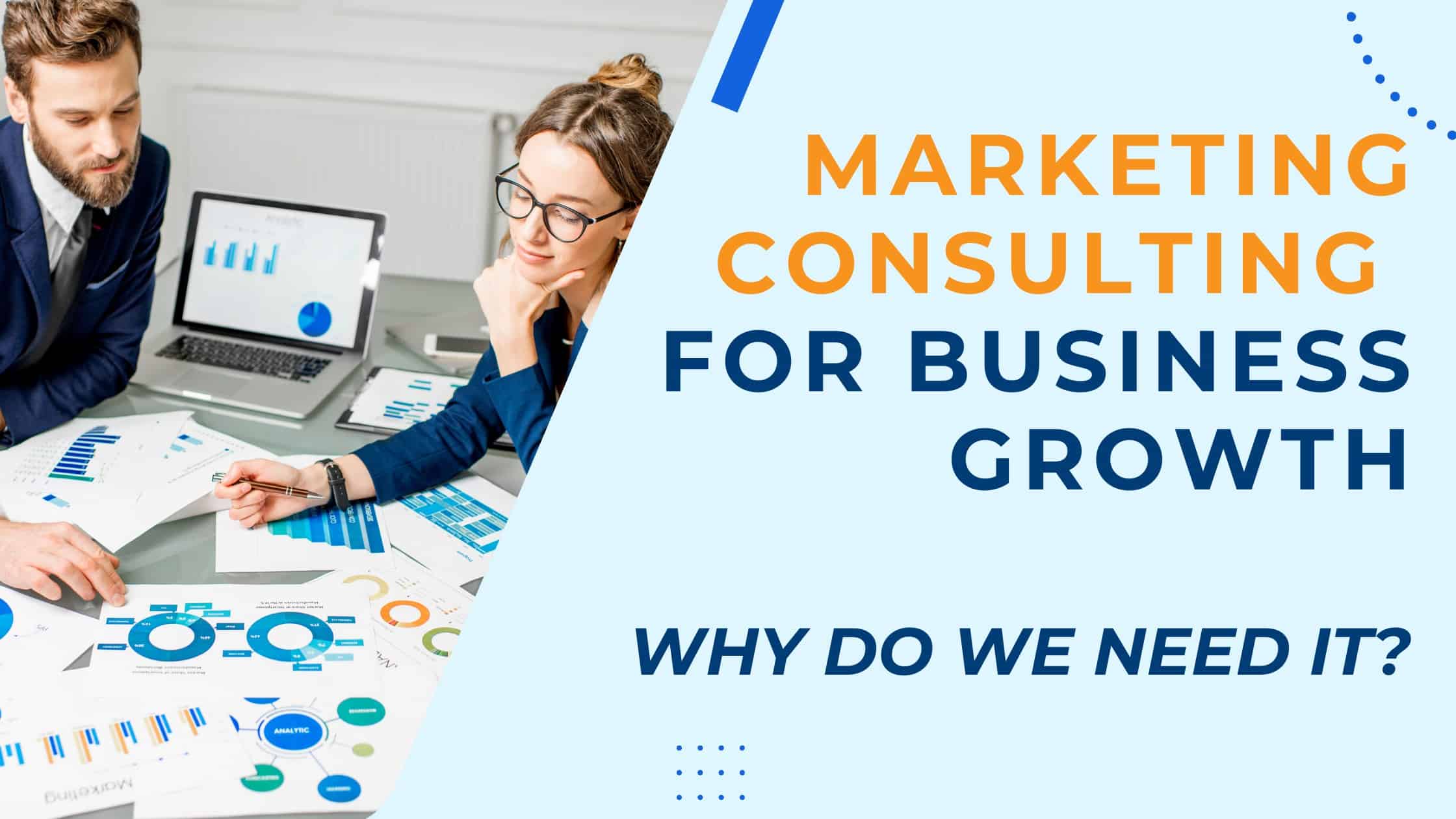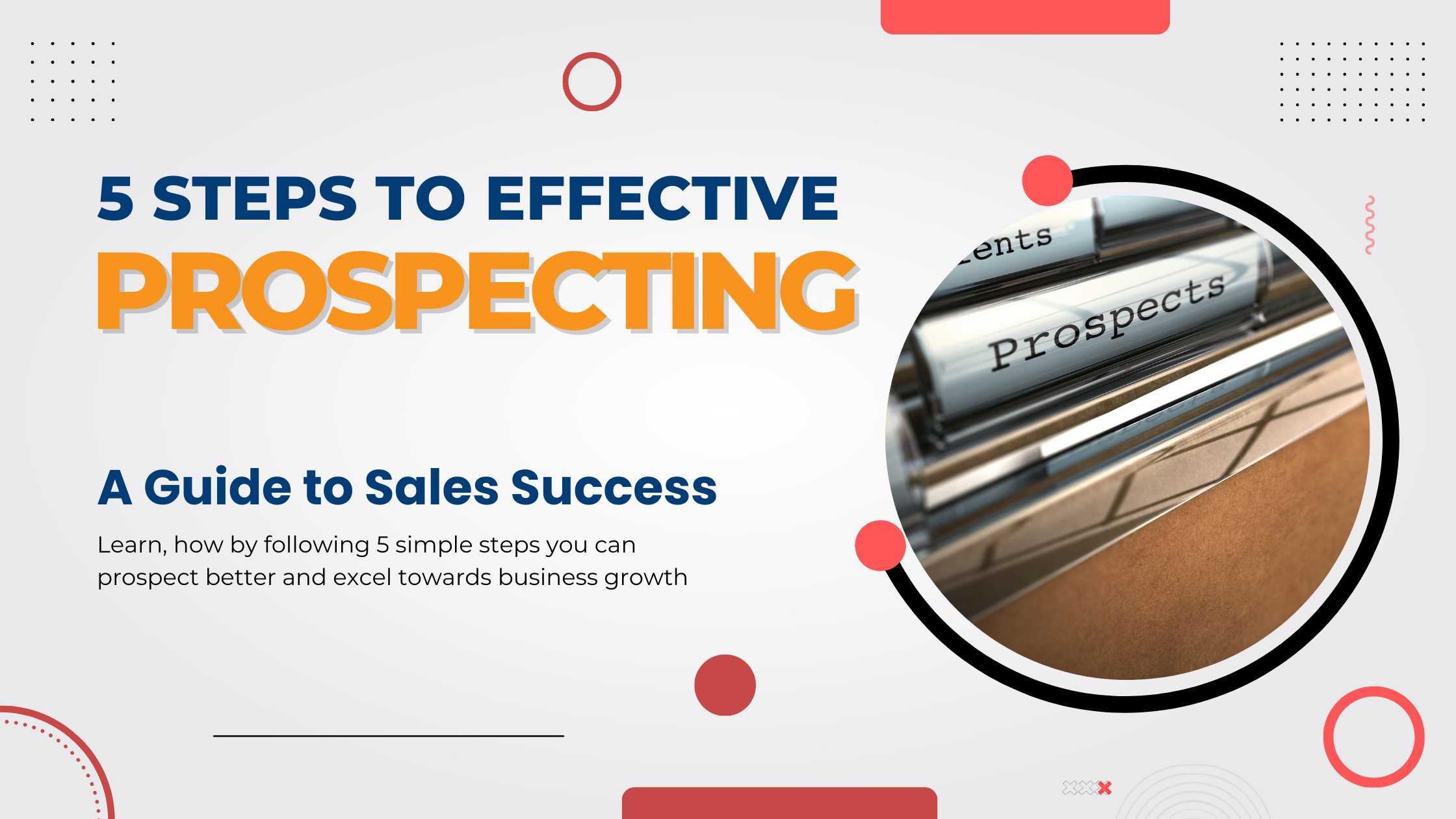Why SMEs must relook at their pitching strategy and how the right USP identification can help them redefine their business strategy?
Over the 8 years which I have spent so far with SMEs in training and consulting them on various aspects of marketing & communications, one discussion has come up time and again and that is the discussion of the unique selling proposition (USP). More often than not, this discussion started with a misconception about what a USP is for the company and ended up in a realisation on the part of the business owner that s/he was pitching too generic and a greater thought needs to be given to the organisation’s real strength and a right discussion around that strength can be a game-changer for them.
The most common thought around USP is that it is all about good quality, good service, best price and timely delivery. Let’s see how this is one of the biggest myths and what exactly is a USP.
What is a Unique Selling Proposition (USP)?
Coined by Rosser Reeves for the first time in his book called Reality in Advertising in 1961, unique selling proposition (USP) was all about creating an advertisement that gives a proposition to the customers, “Buy this product, and you will get this specific benefit. Further, The proposition must be one that the competition either cannot or does not, offer.”
The statement lays emphasis on 2 primary criteria
- A Specific Benefit
- Which the competition cannot or doesn’t offer
This means, an organisation must talk about a unique benefit of the product which the competition either doesn’t have or they haven’t thought about speaking as yet. This specific benefit is such which helps the organisation create differentiation from the competitors and this, when spoken helps them stand out and get noticed.
By this reckoning, terms like quality, price, service and timely delivery are not examples of USPs as any organisation can claim and say we have this or we do this. If everyone can talk about it, it is not where you want to be. It is not a USP. It is one crowded space where you are one among the many and there is no chance to stand out.
Dare to be different is half the battle won!
How can you be different?
If all the above are not unique selling propositions, then what is a USP? An organization can look at showcasing any of the below-listed criteria for developing a USP.
- Benefits to the customer – If a customer stands to get a very unique benefit because of the company’s innovation, then it is USP. I recently trained an organisation that is into pulses/lentils and their unique vacuum packaging technique helped the customers not only get a better shelf life of the product but the technology also kept any insects away from the packaging forever. Before them, I hadn’t seen any company doing this and they clearly stood out for me. In another example, a dental products company used bamboo fibre as the bristles for their toothbrushes which not only made the product attractive & sustainable but different too.
- Being first in a category – First movers tend to stay first because people are reluctant to change brands. Try and see if there are any criteria which you are first at and that can be spoken about. I recently came across an HR Services company who discovered they were the only one providing a specific set of services in the whole province. They picked up this USP and started promoting it and this certainly helped them get the first movers advantage. There are some companies who have started to offer services after them but the first still remain first. They stand out always.
- Owning a specific attribute – Your brand must own a specific place in people’s mind and that attribute must be so strongly associated with you that the competitors can’t own it or talk about it. We all know Mercedes means engineering and such was the association of Mercedes with engineering that the brands entering later had to go for other attributes. Jaguar took the style and Volvo is known for safety. They both are equally good in engineering, but they couldn’t talk about it.
- Heritage is a differentiating factor – If your company brings in a legacy of several years (say 10/25/50 years) in a specific field, then you must talk about it. Having a heritage can give you a lot of credibility. People feel if you are manufacturing this for the past several years, you must be doing something right that you have survived that long. If you have the experience, flaunt it.
- Leadership – Showcasing that you are a leader in a specific domain can really help you get a winning edge in your marketing strategy. You could show your leadership is sales, technology, performance, service excellence or any other attribute and you will stand out. But showcasing leadership comes with a rider, you must be able to substantiate/prove that claim on leadership. If you say it but can’t prove it, it will be a marketing disaster.
I hope my article above has been able to instil some thoughts in your path to re-discover and refine your USP.
At Go4Growth Consulting, we start with building a unique selling proposition for SMEs so they can achieve marketing success faster.
Gagan Kapoor
Chief Marketing Consultant (Go4Growth Consulting)





